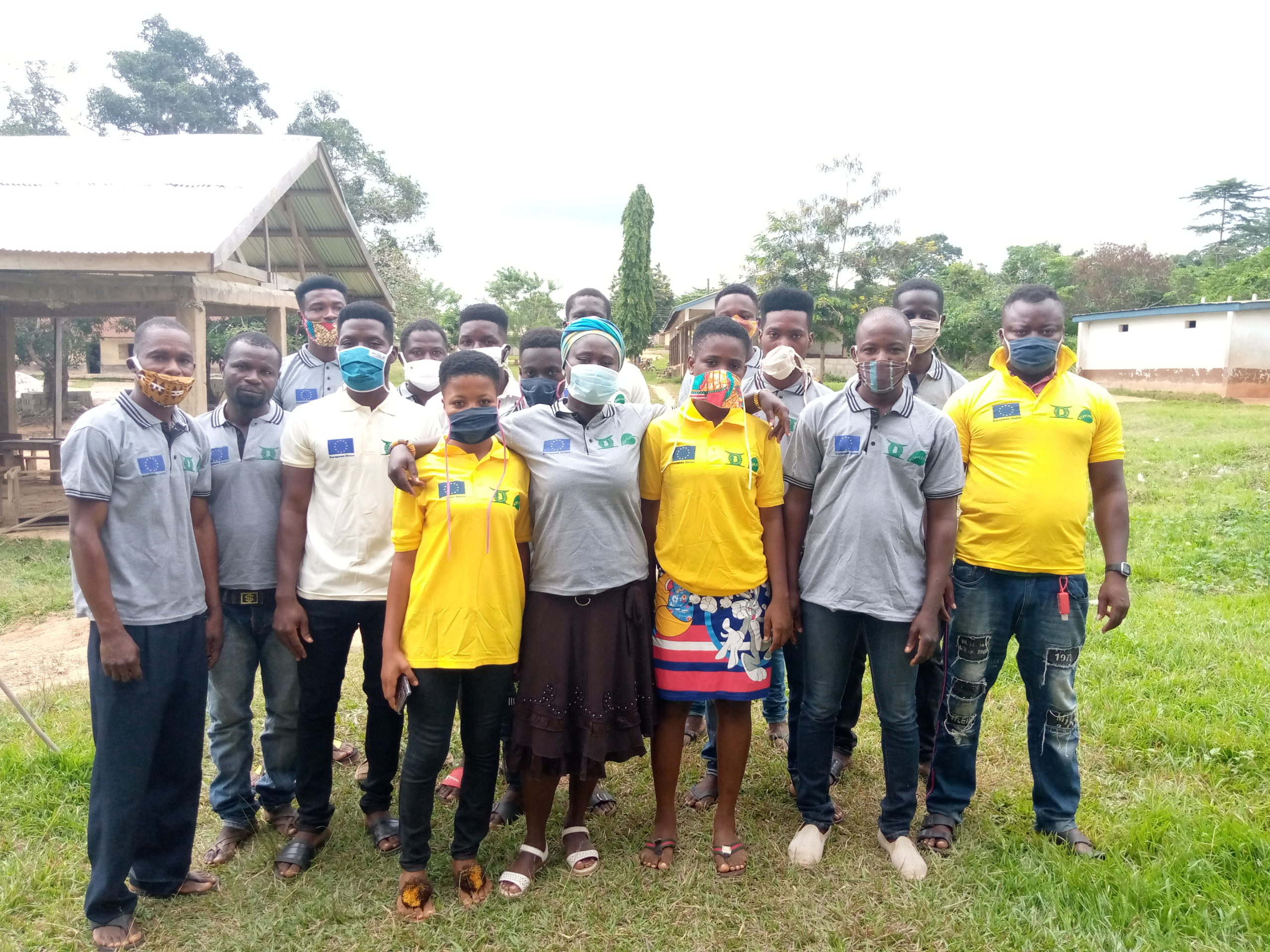 Powered by Timby
Powered by Timby

The increasing rate of illegal logging has not only resulted in the loss of revenue to the economy but also loss of livelihood for community farmers with trees on their farms. This is the situation in Borbokrom and other surrounding communities in the Juaboso-Bia Landscape in the Western North region of Ghana. Farmers have had their cocoa and other food crops destroyed during the harvesting of trees by timber companies on their farms and mostly this occurs without their knowledge and also there are no payment of negotiated compensations. This has led to a situation where some farmers have no option but to abandon their farms due to their inability to bear the cost of rehabilitating the farm to its original productive nature.
It was therefore not surprising when people volunteered to be part of the Timby Community Monitoring Project in their communities. At the onset of the project in Nsowakrom, the people were sceptical on what the project could achieve considering the authority with which timber companies operate in the communities. However, after monitors in Nsowakrom gained knowledge in some forest laws through the project, the timber companies were forced to reform their operational activities to include farmers/communities in the decision-making processes. With the knowledge gained, the farmers were able to question the operations of the timber company and demand their rights are respected.
Fifteen new monitors received training on some forest laws and community rights to help further educate farmers and the communities on their rights and responsibilities to the forest. The monitors were also trained and given android phones installed with the Timby app for the collection of evidence on infractions. The Timby app on the phones helps to collect evidence (in the form of video, pictures and audio) of illegal activities which are geo-referenced. Aggrieved farmers will be made to speak to the issues of logging on their farms without their consent and its aftermath.
Friends of the Earth-Ghana will produce a series of stories captioned ‘’MY STORY’’ which will inform what farmers have been going through at the hands of timber operators in their communities. The stories will also capture changes that has occurred after the implementation of the projects in their communities. The project which is aimed at inclusive sustainable forest governance will also educate and encourage nurturing of natural occurring trees on the farms by farmers.
